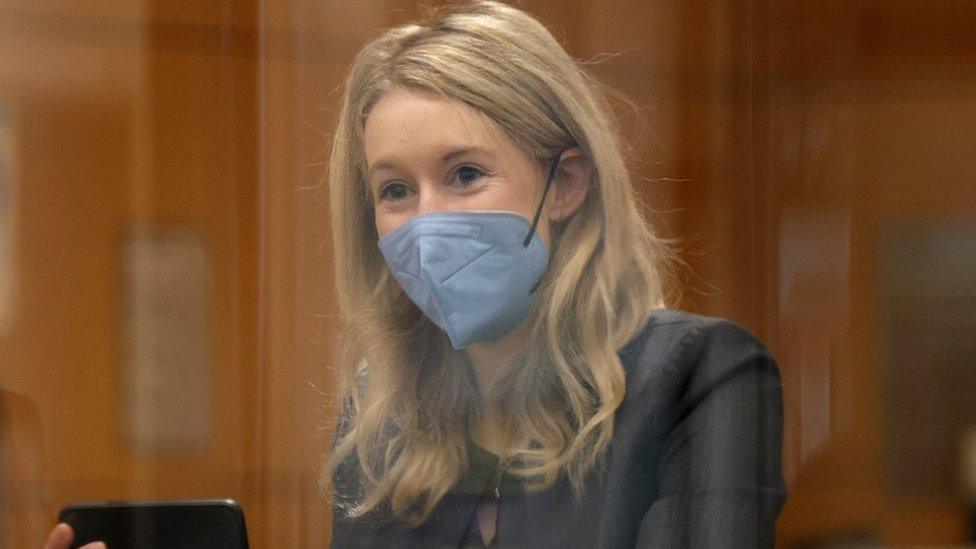Elizabeth Holmes testifies she 'never' misled investors
- Published
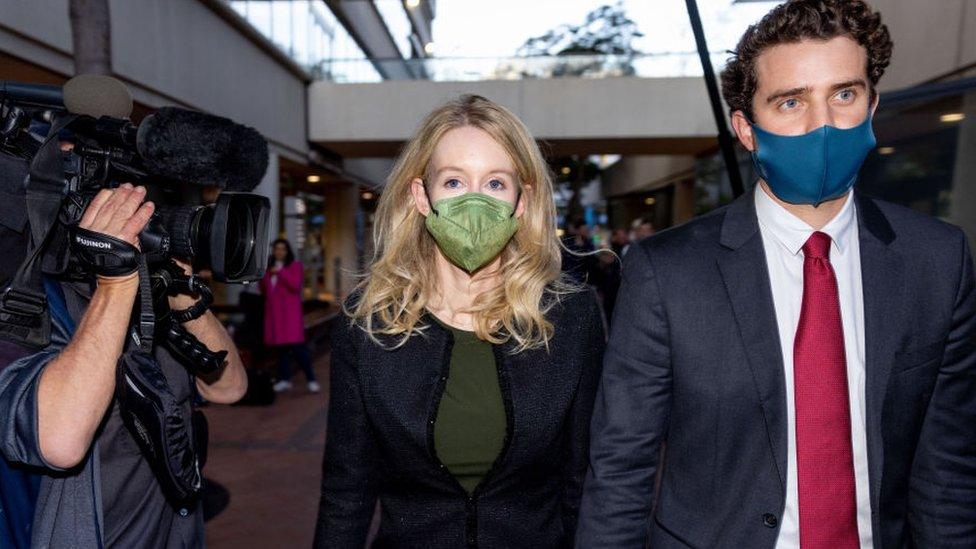
Elizabeth Holmes and her partner Billy Evans make their way to court, where jurors heard the former CEO's explanations for her company's failure
Theranos founder Elizabeth Holmes testified she "never" lied to investors as her defence team rested its case in her criminal fraud trial.
Ms Holmes, 37, pleaded not guilty to charges she lied about her firm, including that its technology could detect diseases with a few drops of blood.
Prosecutors say she knowingly duped investors and patients.
Her defence says she was merely a naïve businesswoman whose firm failed.
Ms Holmes faces 11 counts of wire fraud and conspiracy. Each count carries a maximum sentence of 20 years in prison.
Over seven days of testimony, Ms Holmes acknowledged mistakes were made, but insisted she did not defraud investors or patients.
Asked by her lawyer on Wednesday if she ever led patients to believe Theranos could offer health testing services she knew it didn't, she replied: "Of course not."
The firm, at one point valued at $9bn (£6.5bn), was once the start-up darling of Silicon Valley thanks to its promise to revolutionise the healthcare industry. But Theranos began to unravel in 2016 after a Wall Street Journal investigation reported that its core blood-testing technology did not work.
Prosecutors are trying to convince the jury that Ms Holmes knew she was deceiving people.
Under cross-examination, she conceded that there were errors in a 2014 Fortune magazine cover story by journalist Roger Parloff, which helped lift the young founder to stardom.
On Tuesday, Assistant US Attorney Robert Leach showed Ms Holmes a line in the story, which said the company offered more than 200 diagnostic tests using the Theranos technology.
Asked by Mr Leach if she would agree that statement was incorrect, Ms Holmes replied: "I believe that now."
Ms Holmes testified last week that by 2014, Theranos had started to use third-party machines for most of its blood tests.
She had no clear explanation for why investors were given a revenue projection of nearly $1bn in 2015, when internal estimates were much lower - around $113m. And she disputed claims that she lied to potential investors about Theranos devices being used in military helicopters.
"My testimony is I don't think I said that," she said.
Accusations of an abusive and controlling boyfriend
Ms Holmes' defence team countered with descriptions of a dogged worker, who poured her life into a product she believed would change lives. And Ms Holmes directed blame toward Ramesh "Sunny" Balwani, her former boyfriend and former Theranos executive.
Ms Holmes has accused Mr Balwani, 19 years her senior, of emotional and sexual abuse. She described an intense relationship, in which Mr Balwani controlled how she ran Theranos, who she spoke to, how she spoke to them, and what she ate. He has denied the allegations.
Their decade-long relationship came to an end around the same time he stepped down as CEO in May 2016.
Mr Balwani will be stand trial next year, but has said that he would invoke his constitutional right to remain silent if he was called to testify in the trial.
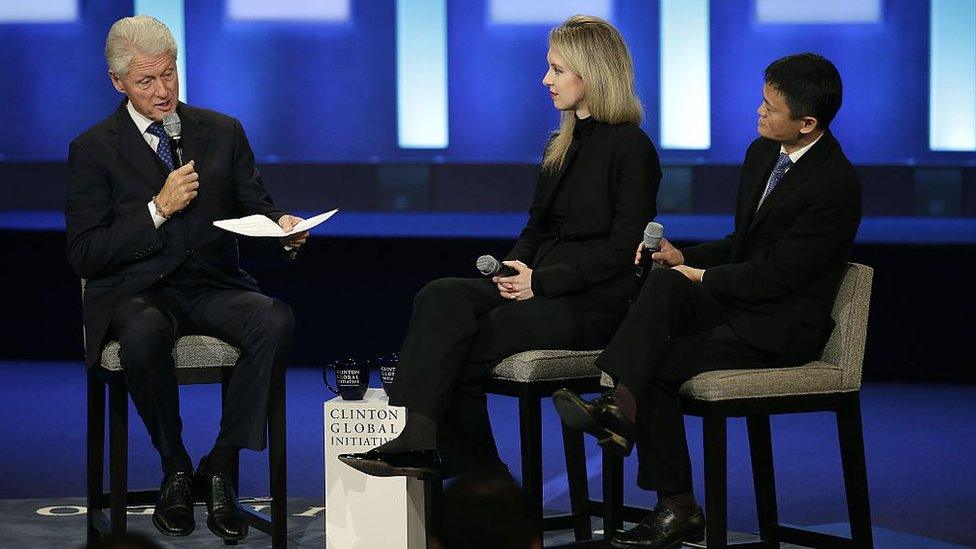
Ms Holmes, seen here with former US President Bill Clinton and former chief executive of Alibaba, was once seen as the next Steve Jobs
While much of her story is already known to the public, some of her testimony has surprised observers.
She testified last week to being raped while a student at Stanford University. The assault led her to drop out of school, she said, and focus on her company full-time.
"I decided to put myself into building Theranos," she told the court through tears. "I decided that I was going to build a life by building this company."
Closing arguments are expected to take place on 16 and 17 December, with jury deliberations to follow.
Related topics
- Published22 September 2021
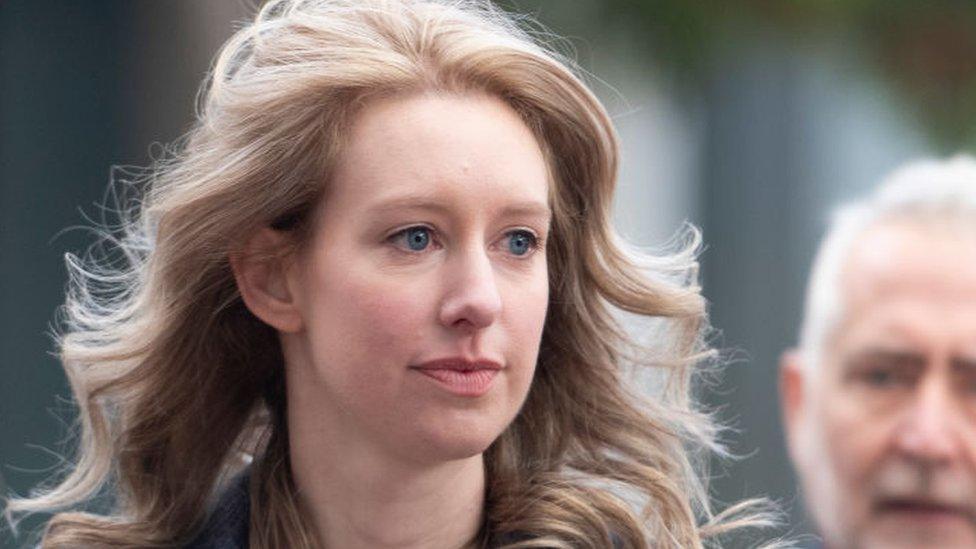
- Published19 November 2022
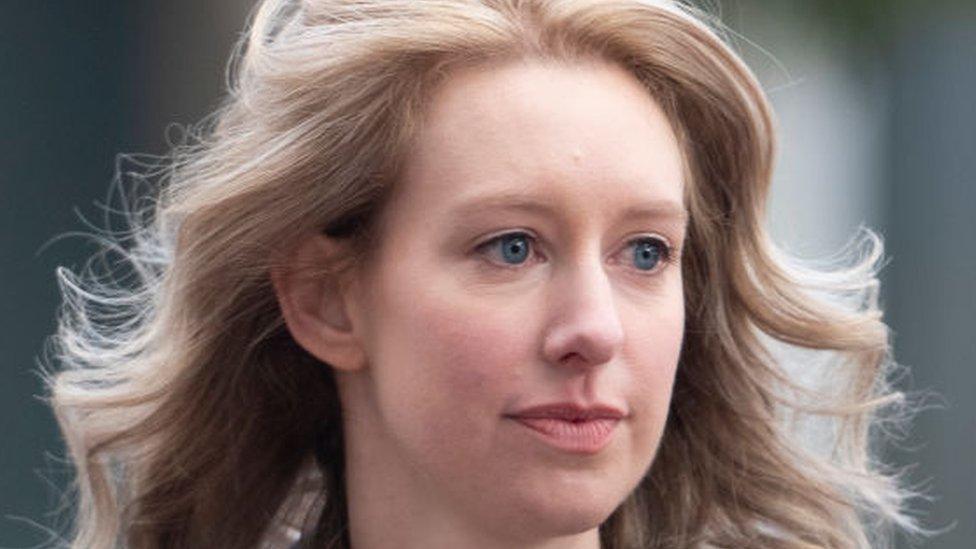
- Published20 November 2021
